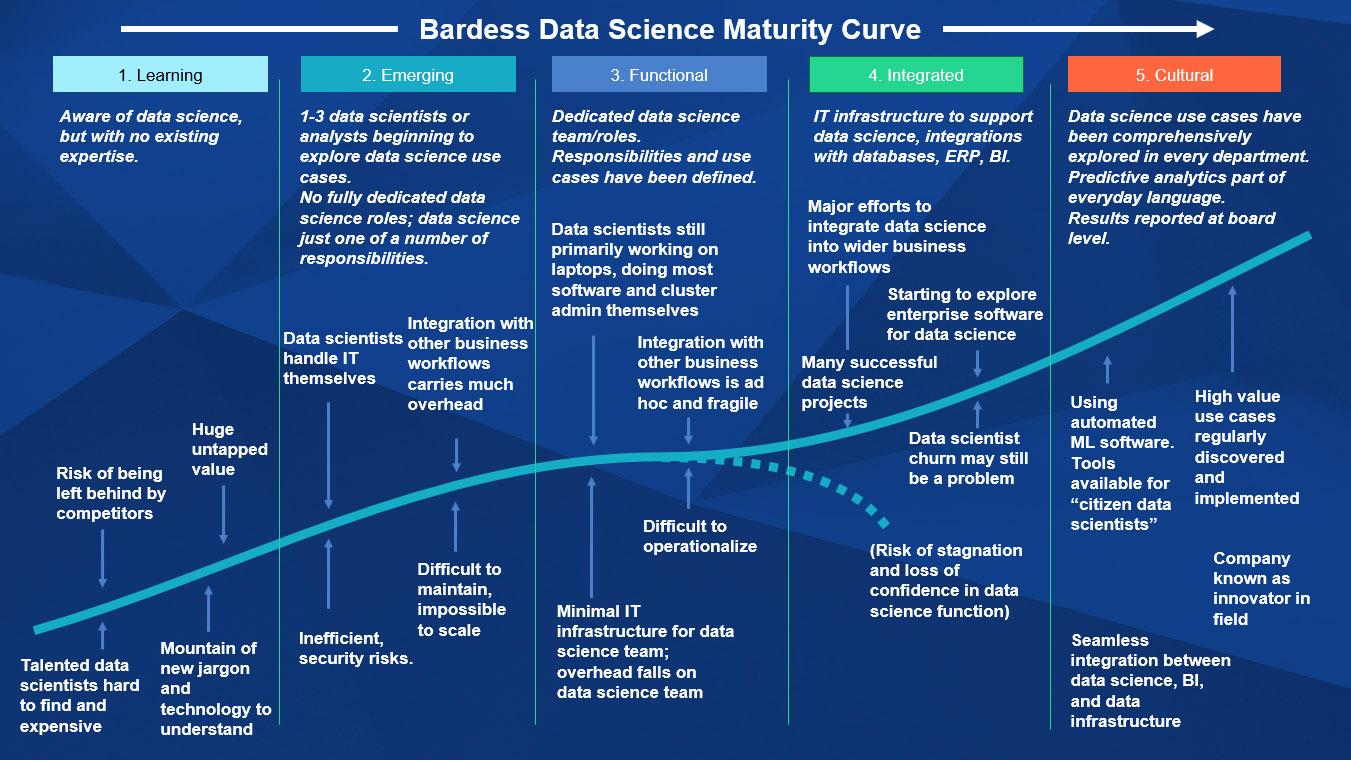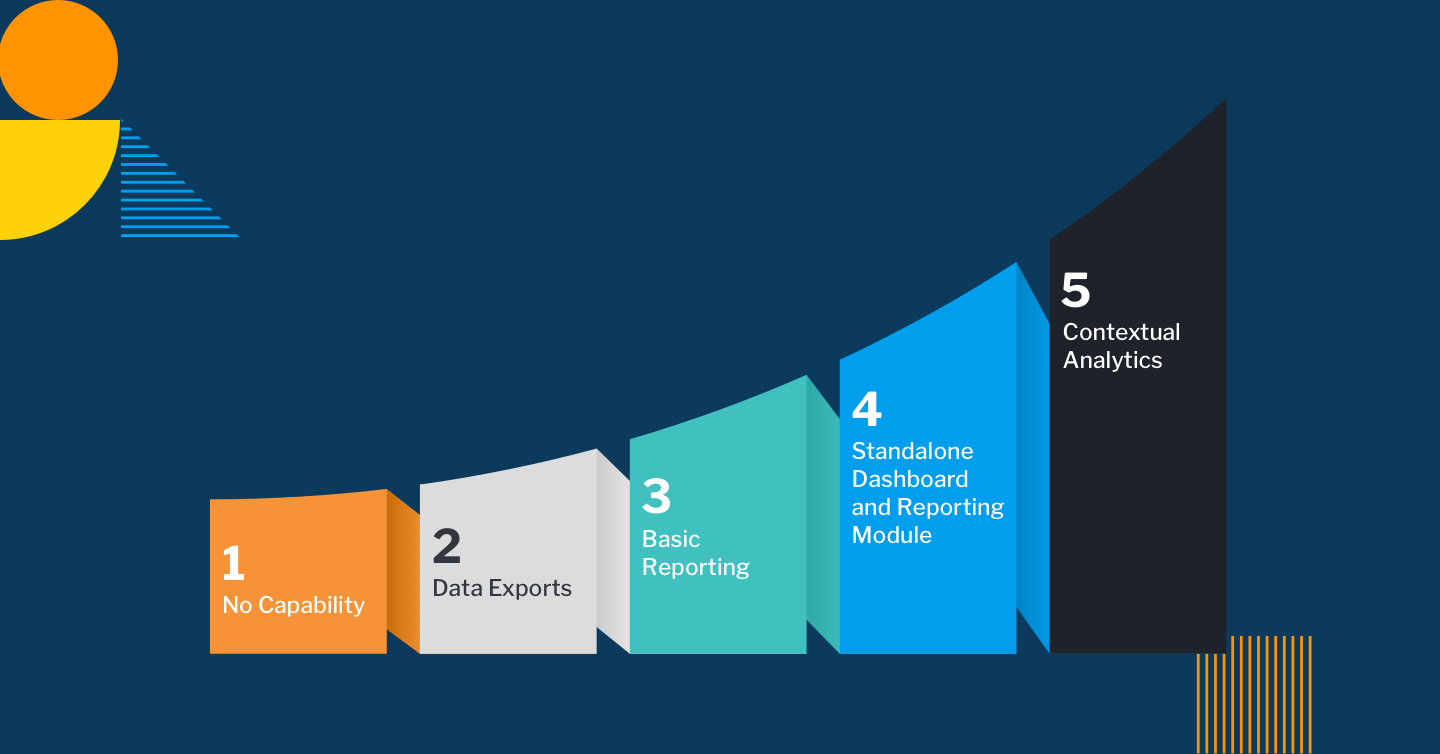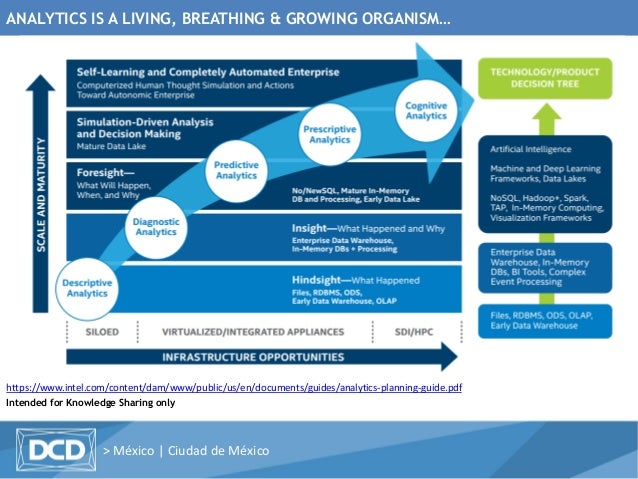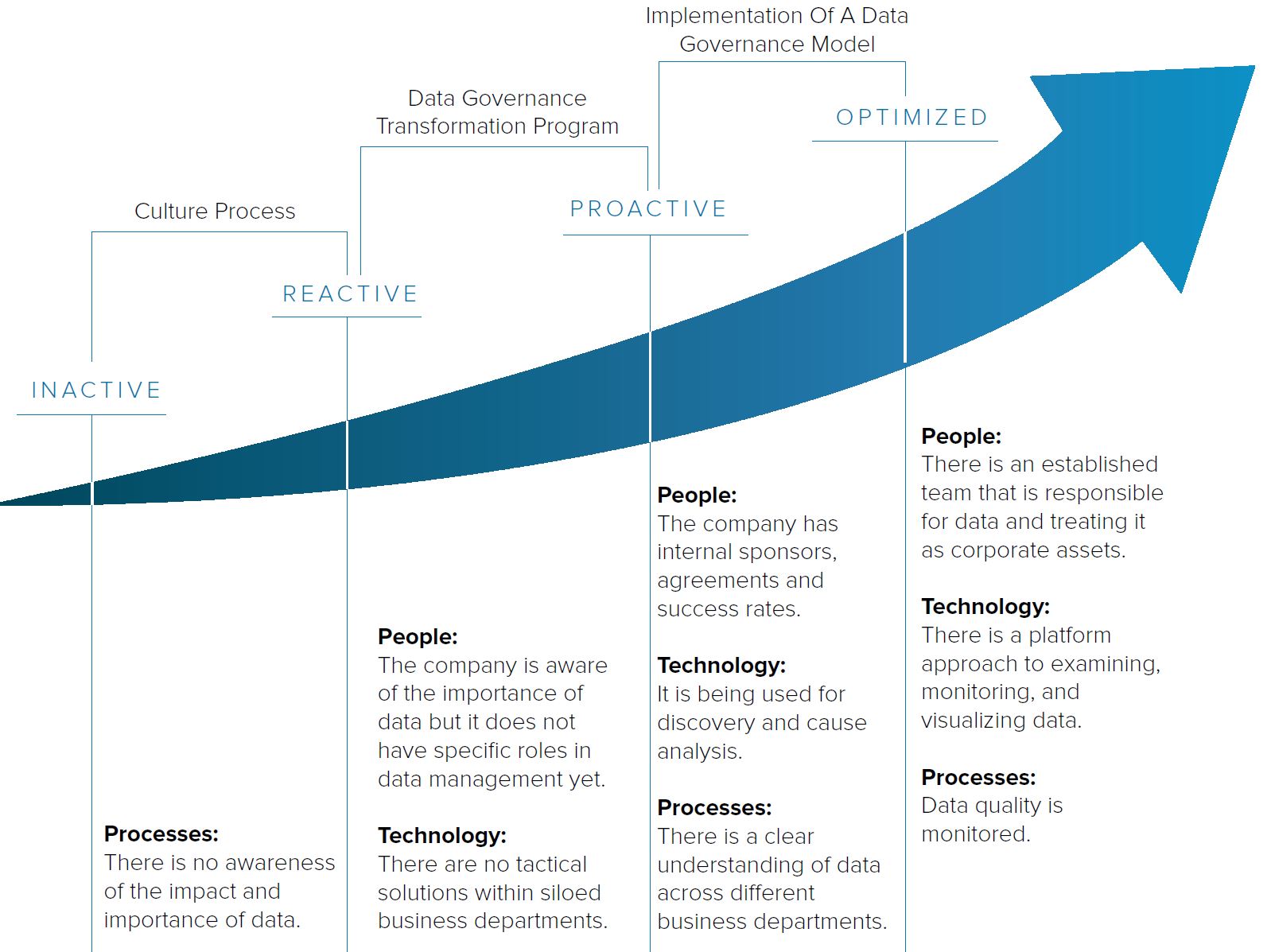From descriptive to predictive to cognitive and everything in between finding the phase thats right for your business depends on your unique needs. In our next installment in this series well examine the elements that make up the first stage of the analytics maturity curve measure including the benefits that can be derived through these capabilities the key barriers that must be overcome to achieve success and how this helps to lay the groundwork for more advanced levels of analytics maturity.
 Analytics Maturity Ecapital Advisors
Analytics Maturity Ecapital Advisors
The Analytics Maturity Curve provides a guiding vision and framework for the Analytics programs across the industry.

Analytics maturity curve. Here is a breakdown of each level. An unanticipated problem was encountered check back soon and try again. The Analytics Maturity Curve breaks down the past present and future of analytics into five phases.
Analytics Maturity is a model for assessing an organizations ability to effectively practice data exploration and decision-making using levels or stages. Their level of analytical maturity contingent on the collective proficiency in 5 dimensions data infrastructure talent consumption and governance. The DAMA and DCAM models have their own approach.
To improve analytics maturity create integrated analytics platforms that extend your current infrastructure to include modern analytics technologies. There is nothing wrong with it. Analytics Maturity Curve Level 1.
The Customer Data Maturity Curve helps you understand the sophistication of your user behavior analytics in relation to whats possible. The Business Intelligence maturity curve. Ive seen it so many times it became an eyesore to me.
You can also learn how to know how to understand when youve reached the next step in your analytics program. The first component of the metamodel of DM maturity is the number and name of the maturity levels. The Analytics Maturity Curve breaks down the past present and future of analytics into five phases.
The presentation will focus on the evolution of Analytics Maturity Curve itself with time the need for it the challenges and finally the lessons learnt during the transition from one phase to another. Read the post Analytics Maturity Part 1 Introducing the Chasm. DM maturity model levels.
This new model of analytics maturity goes from low relevance to high relevance. By understanding where you fit in the curve you can determine what the next exciting new stage can bring to. We can characterize that journey as having four distinct phases and at Intergen we are working with organizations at.
While DAMA and DCAM models offer 6 levels IBM and Stanford models go for 5 levels. Its essentially a bump or a gap in the journey of analytics maturity which takes a little more than usual effort to cross. The traditional maturity curve obscures some big practical differences between the technologies on the left and right of the chasm line.
Only IBM and Standford models agree on the names. The embedded analytics maturity curve highlights the value of analytics to your end-user and the concentration of analytical development effort through 5 stages. Organizations with limited BI resources and a scarcity of analytics talent should consider packaged applications that best fit requirements and company culture for a quick start.
Therefore a better analytics maturity curve looks more like this. The Analytics Maturity model can be easily broken down into 5 simple segments by using this common graph chart or Analytics Maturity Curve. All organizations regardless of their domain or size are safely housed on this spectrum or the analytical maturity curve as shown in Fig1.
When it comes to thinking about your companys analytics maturity and how best to move forwards its useful to think about the technologies in a. In my last post I wrote about the analytics maturity and how there is a gapchasm in the curve which makes it difficult for the enterprise to move from traditional BIdescriptive level to the more modern value driven analytics. The challenges to remaining data-driven and realizing the competitive advantages inherent in this maturity level are embedding analytics seamlessly into business processes scaling beyond databases.
From descriptive to predictive to cognitive and everything in between finding the phase thats right for your business depends on your unique needs. Figuring out where you currently are on what is known as the Business Intelligence BI maturity curve is a very useful exercise. Towards a better model of data science team maturity.
The figure above shows various stages of analytics maturity from descriptive to prescriptive. A primary way maturity models damage teams is when companies take the methods of management that worked for delivering descriptive analytics solutions and impose them on advanced analytics work without modifying the approach to account for data uncertainty. It recognizes that we dont have enough recruiters to hire enough sales reps to meet the revenue targets we promised inventors which is Stage 4 here.
With this curve you can identify where your business is in this progression.
 Analytics Maturity Model Levels Technologies Applications Altexsoft
Analytics Maturity Model Levels Technologies Applications Altexsoft
 The Bardess Data Science Maturity Curve Bardess Group Business Analytics Data Strategy
The Bardess Data Science Maturity Curve Bardess Group Business Analytics Data Strategy
 Predictive Is The Next Step In Analytics Maturity It S More Complicated Than That Digital Business Business Analytics
Predictive Is The Next Step In Analytics Maturity It S More Complicated Than That Digital Business Business Analytics
 Moving Along The Analytics Maturity Curve
Moving Along The Analytics Maturity Curve
 Analytics Maturity Part 1 Introducing The Chasm The Digital Talk
Analytics Maturity Part 1 Introducing The Chasm The Digital Talk
 The Four Levels Of Analytics Maturity Kdnuggets
The Four Levels Of Analytics Maturity Kdnuggets
 Embedded Analytics Maturity Curve Where Does Your Software Rank
Embedded Analytics Maturity Curve Where Does Your Software Rank
How Analytics Maturity Models Are Stunting Data Science Teams By Jason Tamara Widjaja Towards Data Science
What Is The Business Intelligence Analytics Maturity Model
 Predictive Is The Next Step In Analytics Maturity It S More Complicated Than That Digital Business Business Analytics
Predictive Is The Next Step In Analytics Maturity It S More Complicated Than That Digital Business Business Analytics
 Advancing The Analytics Maturity Curve At Your Organization
Advancing The Analytics Maturity Curve At Your Organization
 The Data Analytics Maturity Curve
The Data Analytics Maturity Curve
 From Report To Insight Increasing Analytics Maturity By Pedro Magalhaes Towards Data Science
From Report To Insight Increasing Analytics Maturity By Pedro Magalhaes Towards Data Science

No comments:
Post a Comment
Note: Only a member of this blog may post a comment.